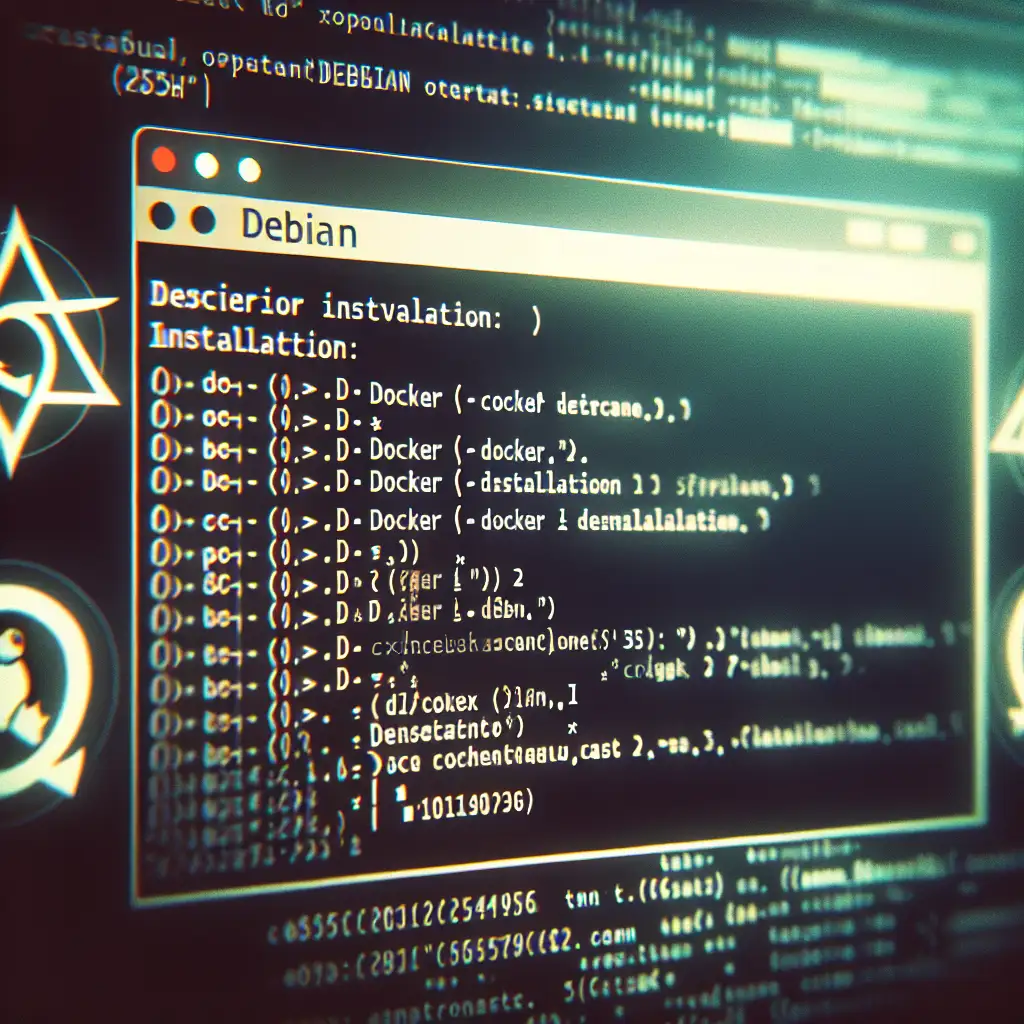Docker Installation on Debian: Precision Setup for Reliable Containerization
Most modern engineering teams depend on reproducible environments. Debian provides the foundational stability, and Docker brings the flexibility for cloud, on-premise, and CI workloads. Here’s a concise, production-oriented installation that avoids common mistakes.
Starting Point
Assumed environment:
- Debian 11 “Bullseye” (
cat /etc/debian_version) - User in
sudoers - Clean system with no legacy Docker artifacts
This guide works for Debian 10 and newer, but some package versions and cgroup behavior differ on older releases.
1. Clean Slate: Remove Obsolete Docker Bits
Previous installs (from apt or third-party scripts) often leave behind packages that conflict with the latest versions—especially if you’ve tried docker.io from the main repo.
sudo apt-get remove -y docker docker-engine docker.io containerd runc
No error if nothing’s found; just verify leftovers with:
dpkg -l | grep docker
2. Required Dependencies
Debian’s default sources aren’t always enough for current Docker releases, as upstream ships newer container runtime binaries. Enable HTTPS in apt, install tools needed for key management and release detection:
sudo apt-get update
sudo apt-get install -y apt-transport-https ca-certificates curl gnupg lsb-release
3. Secure the Package Source
Only install Docker from the vendor GPG-signed repository. Skip this and you’ll risk unsigned, outdated, or tampered packages.
curl -fsSL https://download.docker.com/linux/debian/gpg | \
sudo gpg --dearmor -o /usr/share/keyrings/docker-archive-keyring.gpg
Side note: Docker rotates their signing key periodically. If you see NO_PUBKEY errors later, repeat this step.
4. Add Docker’s Official Stable Channel
Derive your Debian codename dynamically or specify it directly.
echo "deb [arch=$(dpkg --print-architecture) signed-by=/usr/share/keyrings/docker-archive-keyring.gpg] \
https://download.docker.com/linux/debian $(lsb_release -cs) stable" | \
sudo tee /etc/apt/sources.list.d/docker.list > /dev/null
(For legacy hardware: substitute amd64 or arm64 as needed.)
5. Install Docker Engine
Refresh the repo cache:
sudo apt-get update
Install precisely:
sudo apt-get install -y docker-ce=5:24.0.7-1~debian.$(lsb_release -cs) \
docker-ce-cli=5:24.0.7-1~debian.$(lsb_release -cs) \
containerd.io
Gotcha: The package version string changes as Docker releases updates; pin to a specific version if stability is required for critical workloads. Consider using apt-mark hold docker-ce to avoid accidental upgrades.
Validate the installation:
sudo systemctl status docker
sudo docker version
If you see:
Got permission denied while trying to connect to the Docker daemon socket
You’re not in the right group—see below.
6. Enable Non-root Usage (Recommended on Dev Machines)
Administering the Docker daemon as root is safe for production, but inconvenient for daily development. Allow your user to communicate with the Docker socket:
sudo usermod -aG docker $USER
# Then re-login or run 'newgrp docker' to refresh group membership
Practical note: On Ubuntu, this works immediately; on Debian sometimes a full logout is required, particularly on remote shells.
7. Quick Validation: Hello-World Container
Ensure both Docker’s daemon and networking are working:
docker run --rm hello-world
You should see output confirming successful container execution and network connectivity.
8. Enable and Automate Docker Startup
For server systems, enable Docker to launch at boot—otherwise, dependent services may fail to start:
sudo systemctl enable docker
sudo systemctl start docker
Check logs for failures:
sudo journalctl -u docker | tail -20
Typical misconfiguration errors present as:
failed to start daemon: error initializing graphdriver: ... permission denied
This usually traces to filesystem or group membership issues.
9. Next-Level: Compose and Version Pinning
Production deployments often require deterministic builds. Install Docker Compose (for orchestrating multi-container setups) using the official binary to avoid mismatches with python3-hosted versions.
sudo curl -L "https://github.com/docker/compose/releases/download/v2.27.1/docker-compose-$(uname -s)-$(uname -m)" \
-o /usr/local/bin/docker-compose
sudo chmod +x /usr/local/bin/docker-compose
docker-compose version
Non-obvious tip: Regular apt upgrade may lag behind upstream Docker releases. Consider direct install from binaries or a controlled mirror for reproducibility, particularly in airgapped, audited, or highly regulated environments.
10. Troubleshooting Quick Reference
| Symptom | Quick Diagnostic | Resolution |
|---|---|---|
| Docker daemon fails to start | sudo systemctl status docker | Check overlayfs, audit logs |
| Permission denied on socket | id $USER should list docker group | Re-login, check /var/run/docker.sock perms |
| Network bridge issues | docker network ls, ip addr | Disable conflicting firewalls (ufw, nftables) |
| Package hash mismatch | Review /usr/share/keyrings/docker-archive* | Re-fetch GPG key, clear apt-get clean |
Summary
Install Docker on Debian by trusting the vendor packages (never mix sources), and validate success by running real containers. Avoid installing docker.io from default Debian mirrors unless you specifically need those older builds. For production, pin versions and watch for upstream kernel/overlayfs compatibility—change is not always progress.
If you encounter edge cases (for example, custom CGroup v2 configurations on Debian 11+), refer to Docker’s official documentation or open a discussion with ops peers—Documentation may lag, but ops problems demand immediate resolution.
